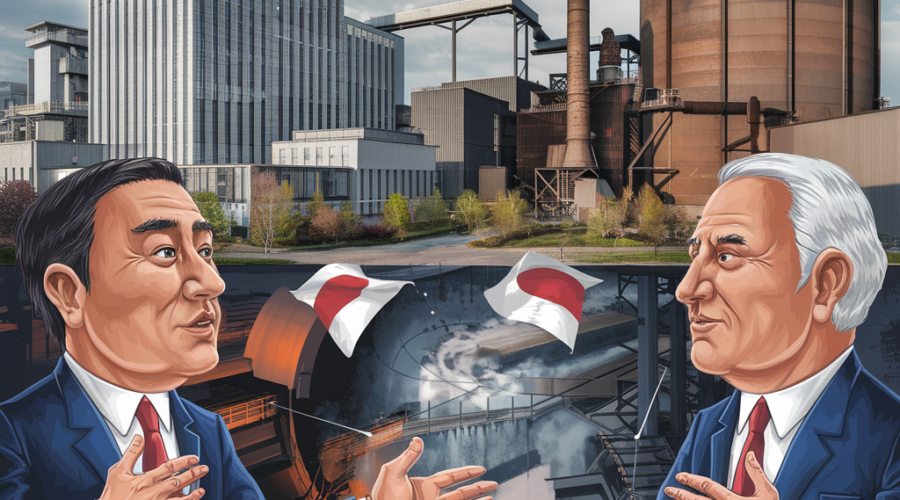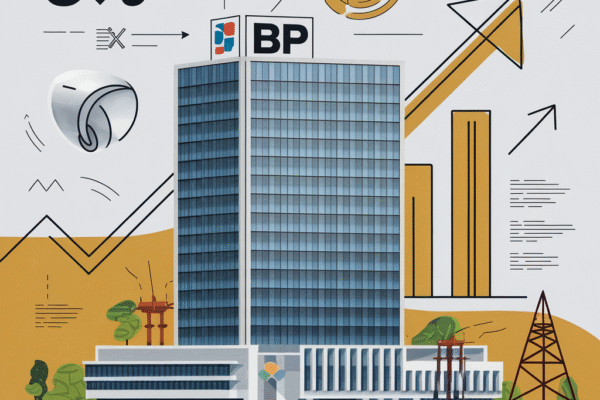Nippon Steel’s $1.3 Billion U.S. Steel Investment: Strategic Move or Market Necessity?
Key Highlights
- Nippon Steel pledges additional $1.3 billion investment in U.S. Steel’s Mon Valley Works and Gary Works facilities.
- The investment aims to enhance operational competitiveness and extend the plants’ lifespan by up to 20 years.
- Nippon Steel seeks to secure a stable U.S. supply chain and mitigate risks from geopolitical trade policies.
- The move is part of Nippon Steel’s efforts to garner support for its $14 billion acquisition bid for U.S. Steel, currently facing opposition from unions and politicians.
Nippon Steel, one of Japan’s largest steelmakers, has announced a significant $1.3 billion investment in U.S. Steel’s operations, underscoring the strategic importance of strengthening its foothold in the competitive global steel market. This move comes as Nippon Steel navigates regulatory hurdles and opposition to its $14 billion acquisition bid for U.S. Steel from unions and politicians.
Bolstering Operational Competitiveness and Supply Chain Resilience
The investment will be divided between two key U.S. Steel facilities: Mon Valley Works in Pennsylvania and Gary Works in Indiana. At Mon Valley Works, Nippon Steel plans to invest no less than $1 billion to enhance the facility’s operational competitiveness. Meanwhile, approximately $300 million will be allocated to revamping the blast furnace at Gary Works, potentially extending its operational life by up to 20 years.
“This investment underscores our commitment to securing a stable supply chain and mitigating risks associated with geopolitical trade policies,” said Nippon Steel’s CEO, emphasizing the strategic importance of strengthening the company’s U.S. presence.
The move is expected to significantly boost operational capacity, support technological advancements, and potentially lead to job creation in the U.S. steel industry. It also aligns with Nippon Steel’s recent investment in Australian miner Whitehaven Coal, aimed at securing a long-term supply of high-quality coal for its steel production.
Navigating Regulatory Hurdles and Industry Challenges
Nippon Steel’s acquisition bid for U.S. Steel faces resistance from the United Steelworkers union and the White House, raising concerns about national security and critical supply chains. The additional investment is seen as a strategic move to address these concerns and garner support for the deal, which could face a national security review extending into 2025.
The global steel industry has faced numerous challenges in recent years, including supply chain disruptions, resource availability issues, and shifts in demand due to the COVID-19 pandemic. Nippon Steel’s commitment to investing in U.S. operations signals confidence in the industry’s recovery and potential for growth.
Competitive Landscape and Future Outlook
Nippon Steel’s investment positions the company strongly against domestic and international rivals in the U.S. steel market. This move is likely to prompt competitor responses, potentially leading to strategic adaptations and market shifts as companies reassess their investment strategies.
“The success of this investment could attract further foreign investments in U.S. manufacturing, particularly in the steel sector,” said an industry analyst, highlighting the potential for broader economic impact.
While the short-term projection is enhanced operational capacity and job creation, the long-term outlook suggests Nippon Steel’s solidified position in the U.S. steel market, contributing to the industry’s recovery and growth. However, the path forward is not without challenges, as ongoing supply chain issues and resource availability remain critical concerns.





